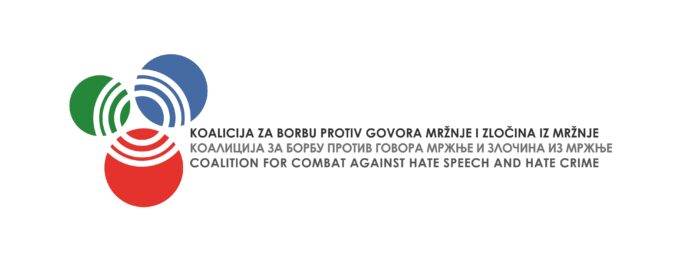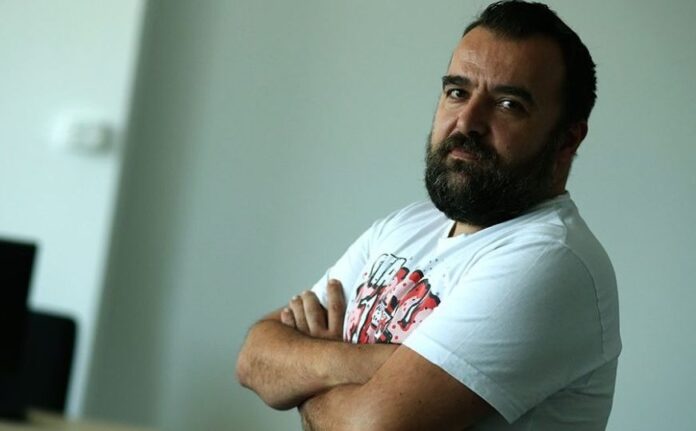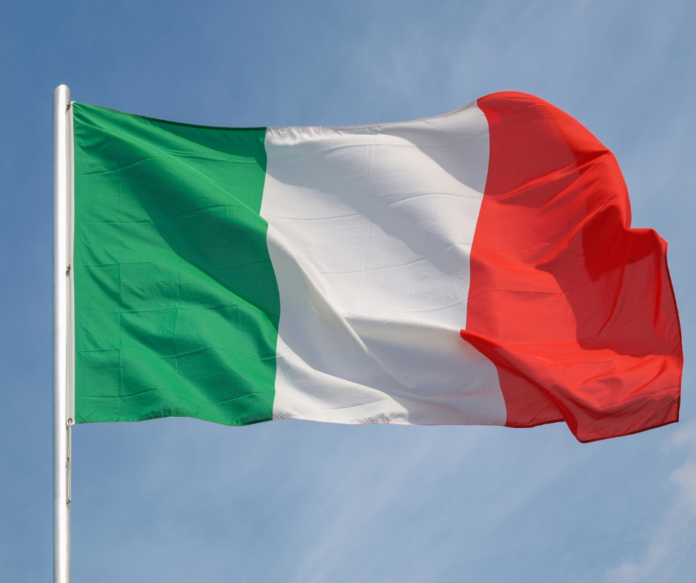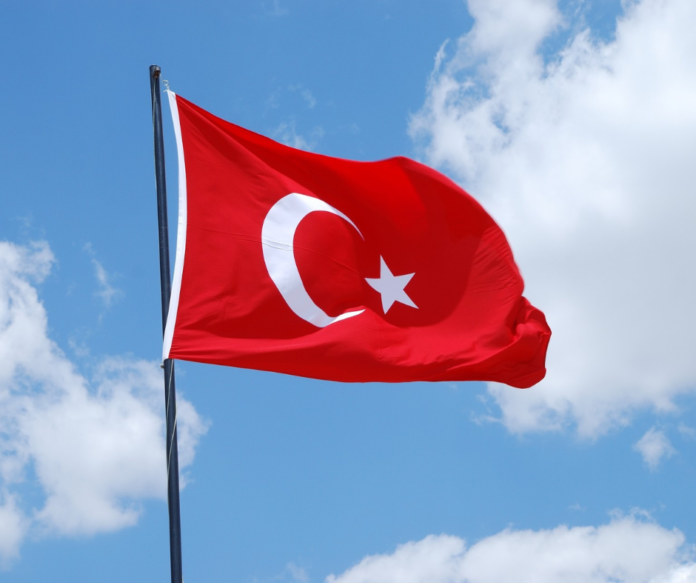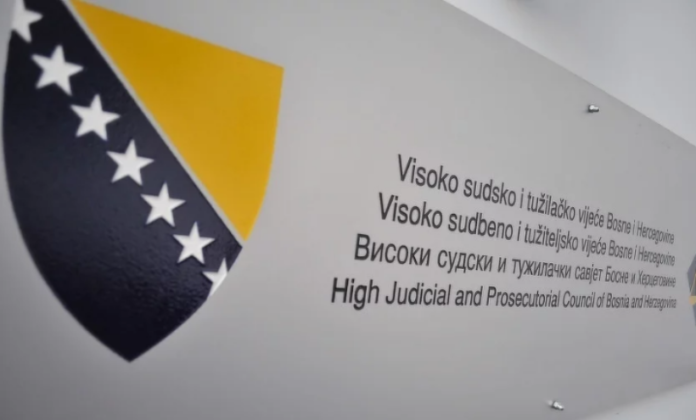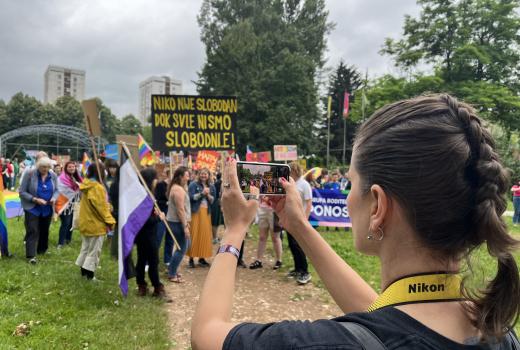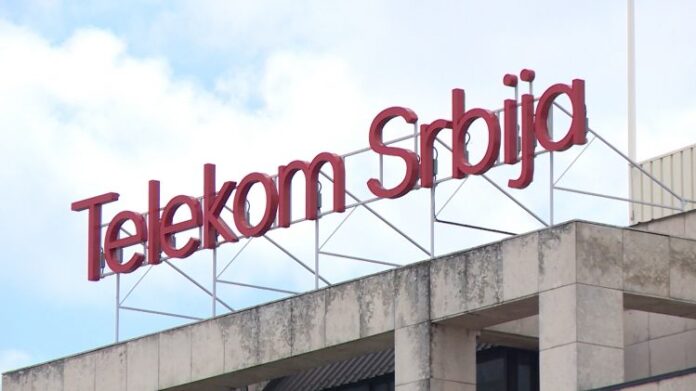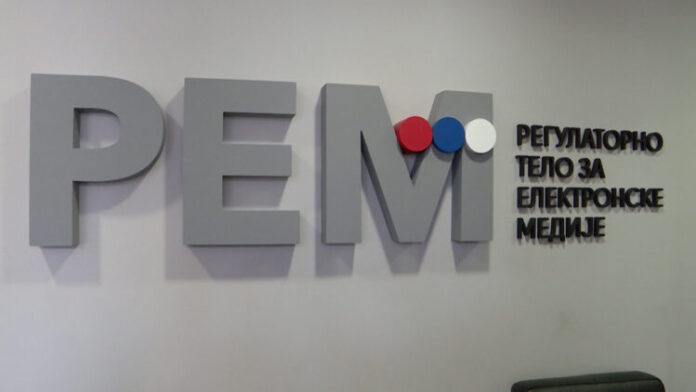Journalists on reporting from Bh. Pride March.
The fourth Bh. Pride March was held in Sarajevo on Saturday – the pride march with somewhat weaker and less visible security measures than before, and the more relaxed atmosphere is noticed by journalists who say that positive changes are visible.
The media have a significant contribution in how the public will perceive the Pride, and with professional, fair and accurate reporting, they fulfill the public’s right to timely and reliable information. Mediacenter Sarajevo followed the work of journalists in the field and recorded their reporting experiences – from the accessibility of interlocutors, organizers, participants, to logistical details essential for journalistic work.
Tahir Žustra, reporter of Nova BH followed all four Bh. pride marches. His coverage of this event includes several days of reporting on the event itself, but also on important topics before and after the Parade. “Logistical information, safety of participants, support of society and community, messages aimed at decision makers in Bosnia and Herzegovina (BiH) – all four years were the focus of Nova TV’s reporting,” says Žustra.
In the context of professional journalism that Nova BH strives for, he adds, this event is no different from any other protest, walk, gathering or event based on the demands of individuals and groups to fulfill their rights. He says that it is always a challenge to offer viewers an objective picture of the event itself supported by facts, relevant information and relevant interlocutors and to offer insight into the current context of why something is happening.
“That’s why it’s always important to talk to the participants themselves from an event like the Pride Parade, for which the parade is organized – to hear first-hand the importance of such a protest and the messages that have addresses to which they are addressed; with government representatives – who directly or indirectly influence decisions that could mean greater freedom and better satisfaction of basic human rights; but also with the civil sector, the international community, embassies – who can offer practical examples from their own communities”, explains Žustra.
This year, N1 reporter Dragica Gajić reported for the first time from Bosnia and Herzegovina. pride parades and that, she tells us, is a special experience for her.
“That’s why just reporting on the LGBTIQ+ community seems like a big challenge to me. First of all, I am thinking about the way of reporting and presenting everything that is a pride parade. Ever since I found out that I will be reporting from the Parade, I have been trying to “sort out” in my head all the problems they face, which are everyday. Starting with discrimination, hate speech, rejection, physical and online attacks,” Gajić told Mediacentar.
Journalist of the Balkan Investigative Network – Detektor.ba, Azra Husarić Omerović, has reported from every Parade so far. He talks about the challenges in reporting for Mediacentar.
“Starting from the first procession to this one today, the biggest challenge is communication with the institutions from which we need answers. Whether it is a question of police agencies, authorities, councils or assemblies, they have very similar formulas of behavior, from ignoring inquiries and requests for the delivery of data, documents, to absolute intolerance towards this topic, which they manifest through spreading hatred towards the LGBT community, as well as all those who are allies in their struggle to exercise their rights,” says Husarić Omerović, who, due to her professional and objective reporting on the relationship between institutions before the procession, was exposed to bot attacks and discredits in the online sphere.
BHT1 journalist Adisa Herco reported from Bh. pride march for the second time this year. She tells Mediacentar that the biggest challenge in reporting is to remain objective in a situation where human rights are not respected. “We live in a country where rights are regulated only on paper. Their implementation in practice is a big challenge and, accordingly, it is also a challenge to be objective when reporting on people who take concrete steps and point out the shortcomings of the system they live in,” says Herco.
Journalist and editor of eTrafika Vanja Stokić has been following the Parade for years, and she tells Mediacentar that the most difficult thing for her is to tell the entire story surrounding the Parade, which most people do not understand and why it is important for it to happen and what it means, in sufficiently simple language. “So that maybe she can reach those who are against her. It seems to me that people have already become numb to the constant phrases we repeat, like ‘the fight for human rights’, ‘rights guaranteed by the constitution’ and the like. I think that those words no longer reach them because we all forced them, so they became immune,” says Stokić about the challenges.
While journalists face challenges of an ethical nature, finding interlocutors and the like, the biggest challenge in photojournalistic reporting from the procession is the speed of work.
“There are a lot of challenges, but from the photojournalist side it is to take good photos, to give as much and as quick information as possible to my colleagues in the newsroom so that they can inform the readers as detailed and as quickly as possible about what is happening, and that I do not miss to photograph someone in the crowd during the procession from famous people who came to support the Procession”, explains Klix.ba photojournalist Davorin Sekulić for Mediacentar Sarajevo. He says that the cooperation with the organizers of the Parade is excellent, and the journalists we talked to have the same experience. “I really have to praise the organizers. The members of the organizing committee are up to their task and are always ready to answer journalists, aware of the fact how important it is for their voice to be heard in public,” says BHT1 reporter Adisa Herco.
Nova BH journalist Tahir Žustra says that the press service of the Pride Parade is characterized by a high level of professionalism in communication and cooperation with the media. “Very thorough, detailed in information, accommodating and flexible in adjusting program contents and open to help in searching for relevant interlocutors, this event and the activists behind it make professionals”, says Žustra.
N1 journalist Dragica Gajić says that she is surprised and pleased by the friendliness of the organizers of the Pride, who, she says, are accessible 24 hours a day and understand the work of journalists. “And our desire to have timely and accurate information,” adds Gajić.
Detektor.ba journalist Azra Husarić Omerović says that the organizers of the Parade are generally very open and approachable, even though they themselves have very limited free time for communication, because they work full-time at other jobs, and freely donate theirs to the Parade. “Through members of the Organizing Committee, we reach community members, some of them we protect their identity, some are ready to speak publicly, all in accordance with the agreement through Bh. pride march”, says Husarić Omerović.
The LGBTIQA community increasingly opens to working with the media
In relation to the first Bh. the pride parade held in 2019, when the public was much more divided and when many feared for their safety, remembering the attack on visitors to Merlinka in 2008, this year everyone is much more open. From citizens to members of the LGBTIQA community. “The changes are evident because as the years pass, there are more and more participants in the procession, and less and less fear, which I consider very important. I am glad that there have been no incidents during the procession so far and that the participants are therefore more relaxed, which in my opinion is very important because it is automatically much easier to find someone to talk to,” says Klix.ba photojournalist Davorin Sekulić.
However, our interlocutors have different experiences when it comes to finding interlocutors to create a journalistic story. Some say that after four processions it is easier to find interlocutors, and some even now have difficulties in finding interlocutors. “Even though I haven’t had the opportunity to report on the Pride Parade, I have interviewed LGBTIQ people. Therefore, I can say that there is a visible shift when it comes to their openness. It is easier for us journalists to ask questions, when we know that the interlocutor will answer them honestly”, is the experience of journalist Dragica Gajić.
BHT1 journalist Adisa Herco says that she has never had a problem finding interlocutors on the topic of Parades. “The difference between availability now and then is that they are even more willing to come out with their stories,” says Herco and adds that the citizens of Bosnia and Herzegovina have accepted all this as an important segment of the functioning of the society in Bosnia and Herzegovina.
This time, as in previous years, she managed to get and talk to the interlocutors, especially people who are part of the community or allies of Povorci and Detektor journalist Azra Husarić Omerović. It seems to her that the public has become more aware and open, so today it is less of a taboo topic to talk to citizens, but also to employers who were previously used for political manipulation, as the parade threatens their business. “Thus, we are witnessing that security measures are in decline compared to previous years, so the stigma and strictness around this topic has loosened in society by a small, but still significant percentage. These small steps are an indication that we can become a better society, more tolerant and accessible to all who make it up,” says Husarić Omerović.
Tahir Žustra notes that over the past four years, there has been an evident greater awareness of society on topics and reports that treat the position of LGBTIQA persons in Bosnia and Herzegovina. “At the same time, it is evident that there is a slightly greater freedom of direct participants in events such as the Pride, who, upon prior request and completely voluntarily, decide to participate in the filming and production of various content for the needs of television reports. There are more and more young people who are ready to talk about their needs, demands, feelings, expectations in the context of improving basic human rights in Bosnia and Herzegovina. This greatly facilitates the work of media workers in the field, but also obligates them not to deviate from professional and ethical reporting, fully respecting the dignity, credibility and dignity of all interlocutors, from all sides as far as human rights in BiH are concerned,” says the Nova BH reporter.
Journalist Vanja Stokić has a slightly different experience, and she says that it is difficult to find people from the community who are ready to talk, especially if you are making a video contribution.
“There are a few interlocutors who are ready to expose themselves, but most are closed. However, it is completely understandable. Not everyone is driven, not everyone wants to draw public attention to themselves, they are not empowered enough for that. There are many reasons why people stay away from the media. But if it is a problem for us in reporting, it is. When you have a few people who are ready to appear in the media, the public creates the wrong image that the community consists of only a few of them. It seems to me that the situation is improving a little, that people are opening up over the years. I actually have some ‘own’ interlocutors with whom I have already established a relationship of trust”, is the experience of journalist Stokić.
Why is it important to report from the Pride March?
For the participants of the procession, it is the most important day of the year for the development of democratic society. Journalists report daily on numerous protests, human rights, marginalized groups, hate speech, but also on political and other topics. However, they agree that reporting from the Pride march is particularly important. “Reporting from the Pride is important for two things: listening and understanding. Listening in the context of all disenfranchised people in BiH who in this way want to draw attention to their degraded position and neglected rights, and understanding on the other hand because society needs to know the real facts in order to reduce the space for speculation, false allegations, passive aggression, violence and the like. Without listening with a true will to be heard, there can be no understanding, and that’s why professional media play a key role here,” says journalist Tahir Žustra.
Professional media reporting, for Detektor’s journalist, is important for sending the right messages, and being present at the Parade is important so that we don’t allow hate speech, misinformation, fake news and political narrative to dominate everything that the Pride communicates. “And those are equal rights and opportunities for everyone and love. Our role is to be guardians of the truth and to pass it on, in order to stop the spread of intolerance and to prevent the political powers from manipulating the victims of the system again to gain their political points,” says Husarić Omerović.
Dragica Gajić says that the only way for the public to support LGBTIQA people is to be aware of the problems they face. “In this context, the role of the media is crucial. I hope that the time will soon come when we realize that the LGBTIQ community is an inseparable part of Bosnian and Herzegovinian society”, says Gajić.
Davorin Sekulić observes that after several years of reporting on the Pride march, the citizens of BiH have a clearer picture of what the Pride March actually is. “The media plays a very important role in all of this, because the citizens of Bosnia and Herzegovina get most of their information from the media, and therefore it is very important to report on the March because that way everyone else can better understand the meaning of the procession and why these people are actually walking,” says Sekulić.
It is always important to be part of an event where people fight for their rights, says BHT1 journalist Adisa Herco. “In this case, it is a basic right guaranteed by the Constitution, the observance of which will bring BiH closer to the countries of the European Union (EU) and bring democracy and hope that the struggle can win and fight for the rights of individuals to love and be loved,” says Herco.
Reporting from Bh. pride march is important for the same reasons why we report on other protests, says the journalist and editor of eTrafika. “The LGBTIQ community has the right to go out on the streets and demand their rights, just like single mothers, pensioners, demobilized fighters, miners… Just as we report on them and advocate for their more dignified life, we should do the same for community”, concludes Stokić.
Journalists are this year in the eyes of the organizers of Bh. pride march are recognized as allies who can contribute to greater visibility of the LGBTIQA community by conveying their authentic experiences, reporting accurately and professionally, and during the parade, among others, messages “in solidarity with journalists” could be heard.


